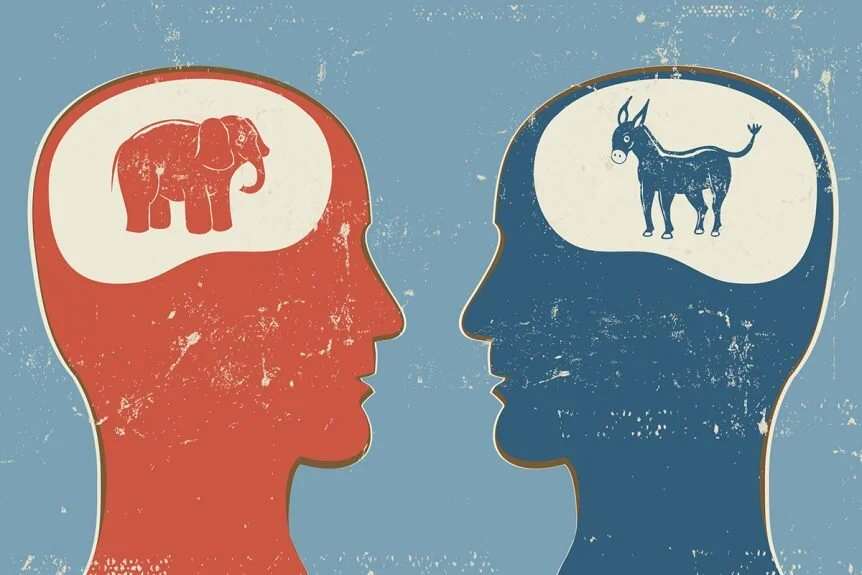'Neither Left nor Right': The Problem With Political Parties
Societies sometimes talk about reforming their political systems. People living in democracies often consider tweaking the machinery of parliament or advocate replacing a first-past-the-post voting system (US, UK, Canada) with one of proportional representation (Italy, Israel, Sweden). In rarer cases, more authoritarian systems sometimes, under public pressure, take on a facade of democracy -- or switch-over entirely.
Democracy, like all systems, has its flaws. But what seldom comes up in discussions about democracy’s drawbacks, and ways to reform it, are the political parties that lie at its core.
Political parties are effectively formulas to bind groups together towards an objective, but they are also exercises in static and fixed thinking. They’re ideological templates of governance applied more or less crudely to a fluid and ever-changing world in which circumstances alter cases. And this is the fundamental problem: we confuse the models in our minds for the reality. Parties are unwieldy tools because governance requires flexible thinking open to any approach (regardless of where that action lies on the political or philosophical spectrum) – and not just the one espoused by the myopic party that applies it broadly in all cases.
The classic divisions, harkening back to the 19th century are of left and right. And, sometimes, we hear of progressive vs. conservative, or traditional vs. liberal. Although each of these attitudes may be applicable at any one time, it is unlikely in the extreme that one party’s views is correct as a permanent model for running a country. In most cases, a mixed approach – anathema to the parties – may be best.
We never question the idea of using political parties because the notion is comfortably simplistic and appeals to our tribal nature, and our desire for certainties. The colored uniforms and banners of sport teams are an apt metaphor for our party politics. Taken to extremes, parties - and the movements from which they originate - can become full-blown cults that espouse exclusivist ideals and policies that might lead to persecution, violence and war.
Perhaps true political reform in a more enlightened age of the future will eschew political parties and their ideologies in favour of a way of governance based solely on what the situation calls for in each case, and from moment to moment (i.e. – what is needed).
RELATED STORIES




